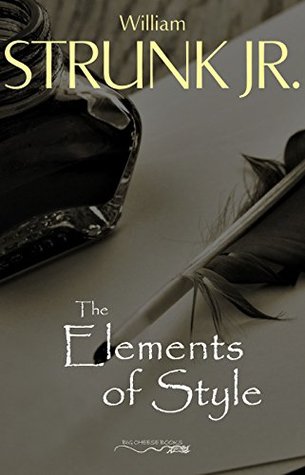More on this book
Community
Kindle Notes & Highlights
Read between
September 24 - September 24, 2023
18. Place the emphatic words of a sentence at the end. The proper place in the sentence for the word, or group of words, which the writer desires to make most prominent is usually the end. a) Humanity has hardly advanced in fortitude since that time, though it has advanced in many other ways. b) Humanity, since that time, has advanced in many other ways, but it has hardly advanced in fortitude. a) This steel is principally used for making razors, because of its hardness. b) Because of its hardness, this steel is principally used in making razors.
The other prominent position in the sentence is the beginning. Any element in the sentence, other than the subject, may become emphatic when placed first. Deceit or treachery he could never forgive. So vast and rude, fretted by the action of nearly three thousand years, the fragments of this architecture may often seem, at first sight, like works of nature.
Headings. Leave a blank line, or its equivalent in space, after the title or heading of a manuscript. On succeeding pages, if using ruled paper, begin on the first line.
Parentheses. A sentence containing an expression in parenthesis is punctuated, outside of the marks of parenthesis, exactly as if the expression in parenthesis were absent. The expression within is punctuated as if it stood by itself, except that the final stop is omitted unless it is a question mark or an exclamation point. I went to his house yesterday (my third attempt to see him), but he had left town.
Quotations. Formal quotations, cited as documentary evidence, are introduced by a colon and enclosed in quotation marks. The provision of the Constitution is: “No tax or duty shall be laid on articles exported from any state.”
Quotations grammatically in apposition or the direct objects of verbs are preceded by a comma and enclosed in quotation marks. I recall the maxim of La Rochefoucauld, “Gratitude is a lively sense of benefits to come.” Aristotle says, “Art is an imitation of nature.”
Quotations of an entire line, or more, of verse, are begun on a fresh line and centered, but need not be enclosed in quotation marks. Wordsworth's enthusiasm for the Revolution was at first unbounded: Bliss was it in that dawn to be alive, But to be young was very heaven!
Syllabication. If there is room at the end of a line for one or more syllables of a word, but not for the whole word, divide the word, unless this involves cutting off only a single letter, or cutting off only two letters of a long word. No hard and fast rule for all words can be laid down. The principles most frequently applicable are: (a) Divide the word according to its formation: know-ledge (not knowl-edge); Shake-speare (not Shakes-peare); de-scribe (not des-cribe); atmo-sphere (not atmos-phere); (b)
Divide “on the vowel:” edi-ble (not ed-ible); propo-sition; ordi-nary; espe-cial; reli-gious; oppo-nents; regu-lar; classi-fi-ca-tion (three divisions allowable); deco-rative; presi-dent; (c) Divide between double letters, unless they come at the end of the simple form of the word: Apen-nines; Cincin-nati; refer-ring; but tell-ing. (d) Do not divide before final -ed if the e is silent: treat-ed (but not roam-ed or nam-ed).
As good or better than. Expressions of this type should be corrected by rearranging the sentence. a) My opinion is as good or better than his. b) My opinion is as good as his, or better (if not better).
The too frequent use of but as a conjunction leads to the fault discussed under Rule 14. A loose sentence formed with but can always be converted into a periodic sentence formed with although, as illustrated under Rule 4.
Can. Means am (is, are) able. Not to be used as a substitute for may.
“considered” means “examined” or “discussed.”
Dependable. A needless substitute for reliable, trustworthy.


